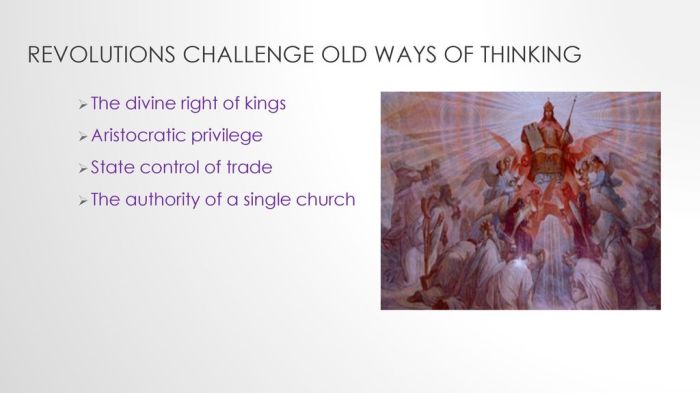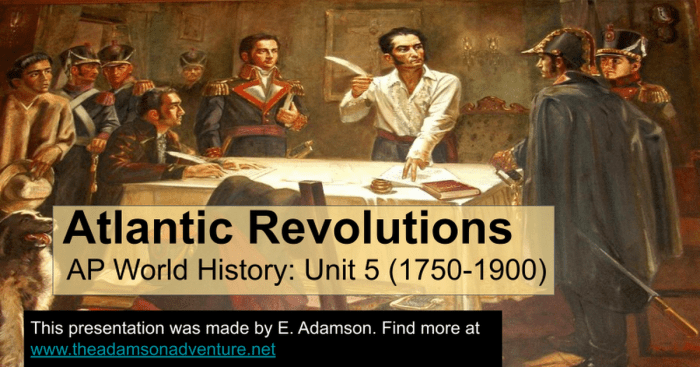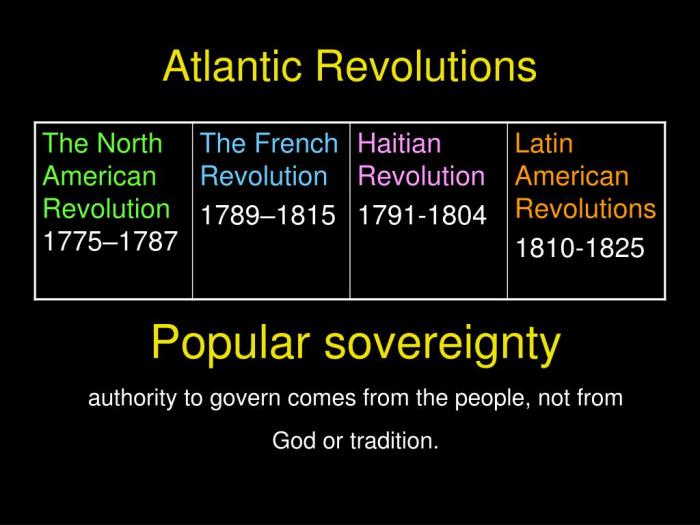The Atlantic Revolutions challenged the absolute and divine authority of monarchs, ushering in an era of republicanism and democratic ideals. This profound transformation left an indelible mark on global politics and society.
From the American Revolution to the Haitian Revolution, these upheavals questioned the legitimacy of monarchical rule, asserting the sovereignty of the people and the principles of natural rights and self-governance.
The Divine Right of Kings

The divine right of kings is the belief that kings and queens are appointed by God and therefore have the right to rule over their people. This concept was widespread in Europe during the early modern period and was used to justify the absolute authority of monarchs.
During the Atlantic revolutions, the divine right of kings was challenged by a number of ideas, including the idea of popular sovereignty, the idea that all political power comes from the people, and the idea of natural rights, the idea that all people have certain fundamental rights that cannot be taken away by the government.
These challenges to the divine right of kings had a profound impact on the legitimacy of monarchies. In some cases, they led to the overthrow of monarchies and the establishment of republics. In other cases, they led to the monarchs to make concessions to their people and to share power with them.
The Rise of Republicanism: The Atlantic Revolutions Challenged The Absolute And Divine Authority Of
Republicanism is a political ideology that emphasizes the importance of individual liberty and the rule of law. Republicans believe that the best form of government is a republic, in which power is vested in the people and their elected representatives.
Republican ideas spread rapidly during the Atlantic revolutions. This was due in part to the influence of the Enlightenment, a philosophical movement that emphasized the importance of reason and individual rights. Republican ideas were also spread by the American Revolution, which was fought against the British monarchy.
The rise of republicanism had a profound impact on the political development of the Americas. It led to the establishment of a number of new republics, including the United States, France, and Haiti.
The Declaration of Independence
The Declaration of Independence was a document that was signed by the Continental Congress on July 4, 1776. It declared that the thirteen American colonies were free and independent from Great Britain.
The Declaration of Independence contained a number of arguments that challenged the authority of the British monarchy. These arguments included the idea that all men are created equal, that they have certain unalienable rights, and that governments are instituted to protect these rights.
The Declaration of Independence had a profound impact on the course of the American Revolution. It provided a clear statement of the goals of the Revolution and helped to rally support for the cause of independence.
The French Revolution

The French Revolution was a period of radical social and political upheaval in France that began in 1789. The Revolution was caused by a number of factors, including the economic crisis of the late 18th century, the growing dissatisfaction with the absolute monarchy, and the influence of the Enlightenment.
The French Revolution challenged the authority of the French monarchy in a number of ways. The revolutionaries abolished the monarchy and established a republic. They also passed a number of laws that guaranteed individual rights and freedoms.
The French Revolution had a profound impact on the spread of revolutionary ideas throughout Europe. It inspired other revolutions, such as the Haitian Revolution and the Latin American revolutions.
The Haitian Revolution

The Haitian Revolution was a slave revolt that took place in the French colony of Saint-Domingue from 1791 to 1804. The Revolution was led by Toussaint Louverture, a former slave who became the leader of the Haitian people.
The Haitian Revolution challenged the authority of the French monarchy in a number of ways. The revolutionaries defeated the French army and established an independent republic. They also passed a number of laws that abolished slavery and guaranteed individual rights and freedoms.
The Haitian Revolution had a profound impact on the abolition of slavery. It was the first successful slave revolt in the Americas and it inspired other slave revolts throughout the world.
The Latin American Revolutions
The Latin American revolutions were a series of wars of independence that took place in the Spanish colonies in the Americas from 1810 to 1826. The revolutions were caused by a number of factors, including the economic crisis of the late 18th century, the growing dissatisfaction with the Spanish monarchy, and the influence of the Enlightenment.
The Latin American revolutions challenged the authority of the Spanish monarchy in a number of ways. The revolutionaries defeated the Spanish army and established a number of independent republics. They also passed a number of laws that guaranteed individual rights and freedoms.
The Latin American revolutions had a profound impact on the spread of republicanism in the Americas. They inspired other revolutions, such as the Greek Revolution and the Italian Revolution.
Key Questions Answered
What was the Divine Right of Kings?
The Divine Right of Kings was the belief that monarchs ruled by the grace of God and were therefore above the law and accountable only to God.
How did the Atlantic Revolutions challenge the Divine Right of Kings?
The Atlantic Revolutions challenged the Divine Right of Kings by asserting that all people are created equal and have the right to self-governance.
What was the impact of the Atlantic Revolutions on the spread of republicanism?
The Atlantic Revolutions played a significant role in the spread of republicanism, as they demonstrated the viability of republican governments and inspired subsequent revolutions around the world.